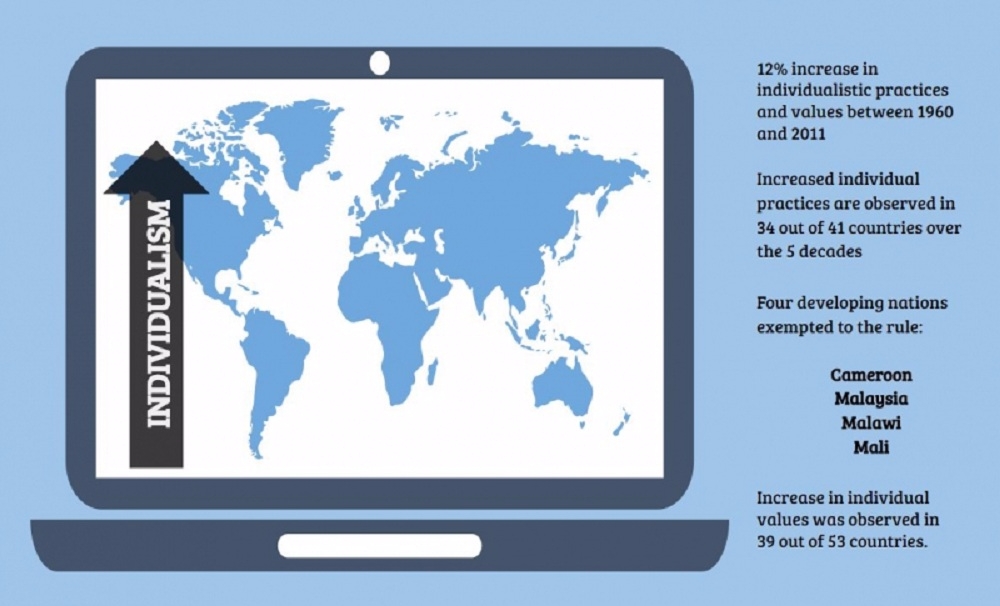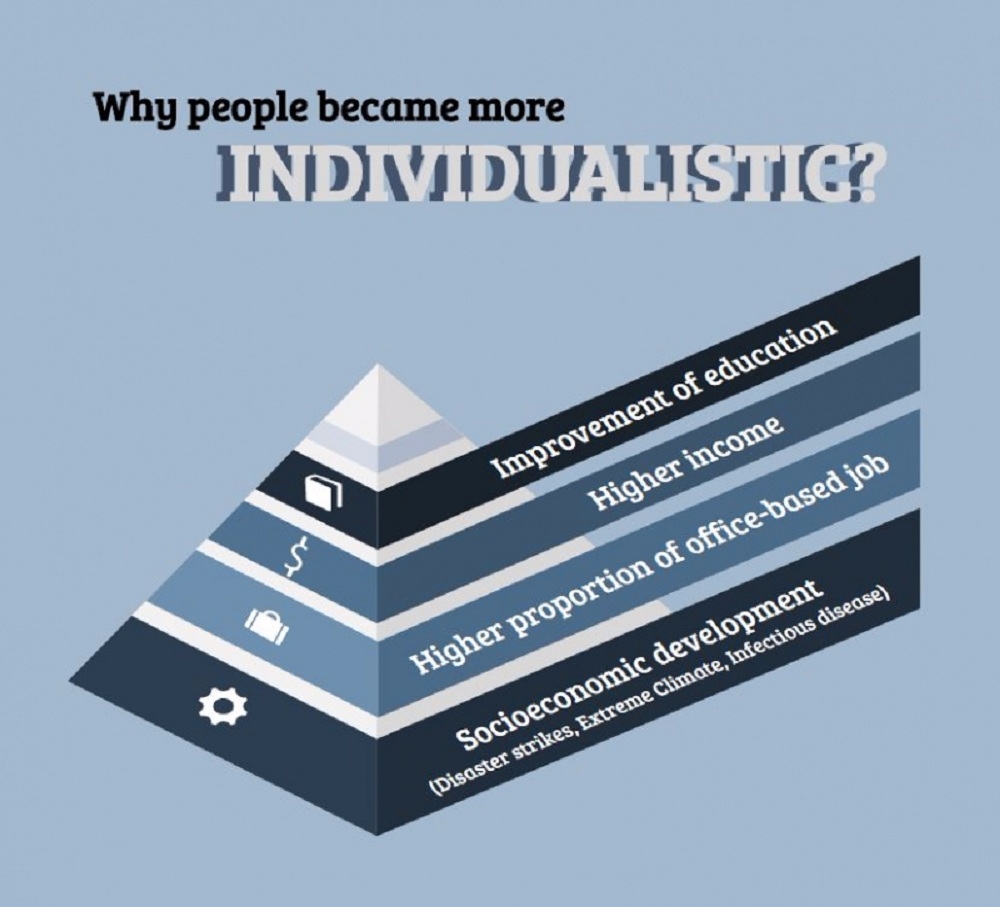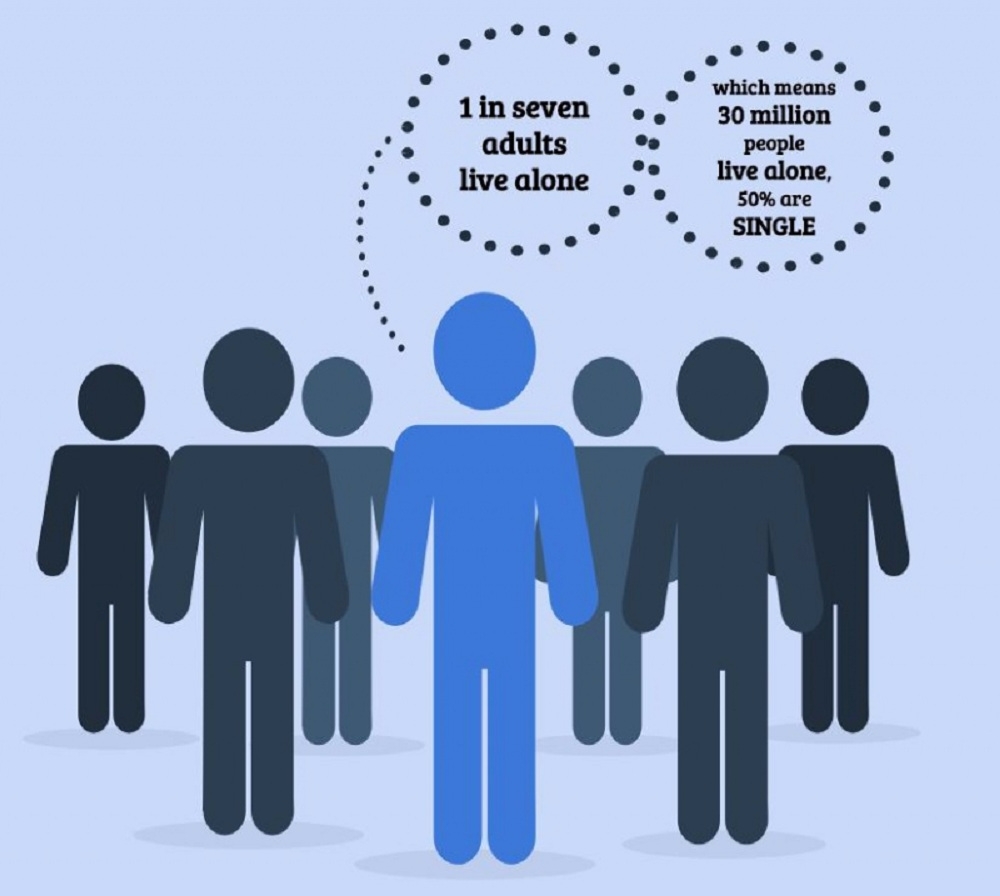
According to a recent study, an analysis of data collected in 78 countries over the last 51 years has shown that individualism has spread worldwide.
From 1960 to 2011, individualistic practices and values increased by 12%, and personal customs such as divorce and independence increased significantly.
Only four developing countries in Africa and Asia - Cameroon, Malaysia, Malawi and Mali - have not increased their individualism.
People in 39 of the remaining 53 countries have increased their personal values, such as giving more value to friends than family members, emphasizing independence for children and appealing for freedom of speech.

Henri Santos, a research team, has studied why people have turned into personalistic tendencies for some time.
The researchers have long investigated whether social factors, such as social and economic development, natural disasters, extreme weather and epidemics, are related to individualism.
As a result, it turned out to be an individualist tendency because it said that education distribution, income increase, and the ratio of office workers increased. Most countries that did not have an increase in the values of individualism were those that had no change such as income or employment.

"Unlike the past, there are more people who are not wealthy, or who have individualism values outside of North America and Europe," said researcher Santos.
In order to measure the values considered as individualism in the study, the family size, divorce rate,
Number of people, etc. are included in the data collection list.
Santos advised social professionals in various countries to study and investigate more deeply how individualism became popular in each country.
Another researcher, Igor Grossman, said, "We plan to conduct future research on cultural change that will make people more prominent."
The changes that researchers want to focus on include migration, race change, and the potential impact of individualism on a global scale.
The study cited the work of Eric Clayenberg and Luna Simpson.

Kleinenberg investigated the impact of American singing culture on politics and economics. As a result, in 1950, 22% of the United States' total population was single, but now it has risen to 28%.
One in seven American adults, or 30 million people, are living alone, and one in two adults is single.
Unlike the traditional belief that people living alone are lonely and isolated, more and more people prefer to live alone, according to Kleinenberg.
However, he points out that people who live alone have more social and civic activities than married people.
Rather, they are more likely to eat, exercise, attend art classes and music lessons, as well as participate in public events and lectures, compared to those who have a home.
They are also more involved in volunteering. Recent studies show that people who live alone have better mental health than people who have a home.
Research has shown that a compromise between traditional living and home living is needed.
Researchers point out that opportunity is not an obligation. If people have to be away from each other because of the opportunity, it does not mean that they do not want to live with their family or the people who grow up together.
![[Parenting] Individualism increases worldwide parenting individualism increases worldwide](https://moontore.com/wp-content/uploads/2019/02/parenting-individualism-increases-worldwide-1200x700.jpg)


